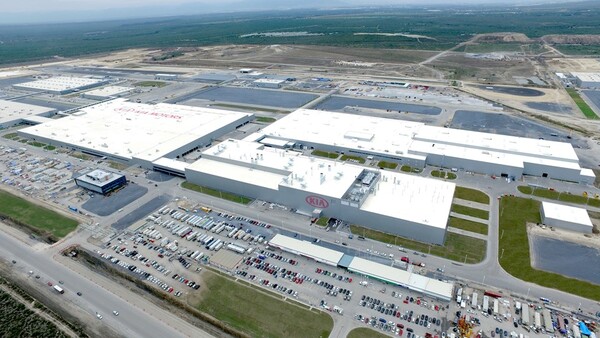Trump's Tariff Plan on Mexico and Canada Sparks Concerns for Korean Automakers
On November 26, U.S. President-elect Donald Trump announced via social media that he would sign an executive order on January 20, his inauguration day, to impose a 25% tariff on imports from Mexico and Canada. This move has sent shockwaves through South Korean companies operating in Mexico.

The domestic industry is bracing for the impact, accepting the tariff imposition as a confirmed fact in light of the past actions of the Trump administration. Mexico, with a trade surplus of $152.4 billion with the U.S., is a significant contributor to the U.S. trade deficit, second only to China. Trump's rationale for addressing trade imbalances on his first day in office is clear.
The South Korean automobile industry, particularly Hyundai Motor, Kia, and GM Korea, is expected to be hard-hit by the 25% tariff. These automakers rely heavily on exports to the U.S., with over 50% of their exports directed there. The imposition of tariffs on Mexico, which had been enjoying tariff-free benefits under the United States-Mexico-Canada Agreement (USMCA), is a significant blow.
Kia, which completed a production plant in Pesqueria, Mexico, in 2016, is expected to be heavily affected. Of the approximately 250,000 units produced in Mexico, around 60%, or 150,000 units, are exported to the U.S. If Trump imposes a 25% tariff, it will inevitably erode price competitiveness. Hyundai Wia, which was preparing for the booming hybrid electric vehicle (HEV) era, also faces a dilemma. About 40% of Hyundai Wia's vehicle division sales come from engine assembly. The anticipated orders for hybrid engines to be supplied to Hyundai and Kia, which had set ambitious sales targets for hybrid vehicles in the North American market, are now in jeopardy.
Samsung Electronics and LG Electronics, which built appliance plants targeting the vast North American market, are also in an uneasy situation. Samsung Electronics produces LCDs and LEDs in Mexico, while LG Electronics manufactures TVs and refrigerators. The four-year term of Trump's presidency makes it challenging for companies to respond effectively to the tariff imposition. An industry official stated, "We don't know what additional measures Trump might introduce," adding, "The situation is becoming increasingly uncertain, and we are literally 'keeping a close watch.'"
As anxiety grows, the government is also struggling to come up with countermeasures for local companies operating in Mexico. A senior government official stated, "The recent tariff imposition remarks reaffirmed existing positions, and it is unclear which items will be subject to tariffs and to what extent," adding, "The government is actively engaging in discussions and real-time information gathering with local companies and through various communication channels to minimize the impact on businesses." The official also emphasized, "The government is thoroughly preparing to minimize the damage to companies from tariff impositions, but actual support will be linked to the implementation of tariff measures by the Trump administration."
Experts are calling for a shift in the government's passive response approach. They argue that countermeasures, including subsidies, should be introduced to break down Trump's tariff barriers. Cho Young-jae, a lawyer at the law firm Gwangjang, stated, "The U.S. is erecting tariff barriers to protect its industries, and we cannot just sit idly by," adding, "Apart from the general tariffs, we need to design subsidy systems to protect domestic industries and support local companies."









Comments